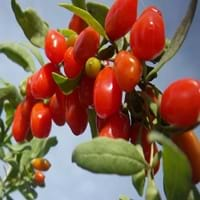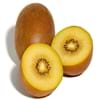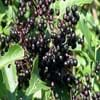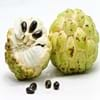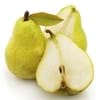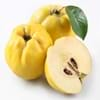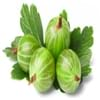Health Benefits
Cancer prevention, Heart care, Increases metabolic rate, Reduces stress
Anti-oxidant properties, Eye care, Helps in cartilage regeneration, Regulates Blood Sugar, Treatment of osteoarthritis
General Benefits
Boosts immune system, Controls blood pressure, Digestive aid, Eye care, Helps in weight loss
Boosts immune system, Digestive aid
Skin Benefits
Brightens and lightens complexion, Treatment of acne, Treatment of dark spots
Anti-aging benefits, Reduces wrinkles, Treatment of skin diseases
Hair Benefits
Promotes longer and healthier hair, Protects hair
Protects hair, Regulates hair growth
Allergy Symptoms
Abdominal pains, Breathing difficulty, Coughing, Diarrhea, Drop in blood pressure, Fainting, Runny nose, Skin rash, Sneezing, Swelling of mouth, tongue or lips, Vomiting
Anaphylaxis, Itching, Sneezing, Wheezing
Side Effects
Allergic reaction
May interact with some drugs
Best Time to Eat
As a snack in the late afternoon, Don't consume at night and before bed, Eat the fresh ones, avoid mixing with any other foods, don't eat after meal., Morning time (before lunch)
Any time except an hour after meal, Don't consume at night and before bed
Vitamin A (Retinol)
Not Available
Vitamin B5 (Pantothenic Acid)
Vitamin C (Ascorbic Acid)
Vitamin K (Phyllochinone)
Lutein+Zeaxanthin
Not Available
Phytosterol
Not Available
Calories in Fresh Fruit with Peel
Not Available
Calories in Fresh Fruit without Peel
Not Available
Calories in Frozen Form
Not Available
Calories in Dried Form
Not Available
Calories in Canned Form
Not Available
Not Available
Varieties
Clemenules or Nules and Nadorcott
No Types
Inside Color
Orange
Orange
Taste
Sweet, Tangy, Tart
Slightly bitter, Tart
Soil Type
Loam, Sandy, Well-drained
Well-drained
Climatic Conditions
Warm to hot climate
Cold, Hot
Facts about
- Clementine was first grown at the citrus research center in USA in 1909.
- It is called as"Christmas orange" as it's limited growing season falls during winter.
- It's a hybrid between Mediterranean and Oranges.
- Study says a man named Li Qing Yuen used to eat goji berries daily and lived for 252 years.
- They are also known as wolfberries in India & China.
- This fruit is used for spiritual purposes at many places.
Other Countries
Argentina, Brazil, Egypt, Italy, Japan, Morocco, Turkey, United States of America
Canada, France, India, United States of America
Top Importer
United States of America
United States of America
Botanical Name
Citrus clementina
Lycium barbarum
Synonym
Not Available
Wolfberry
Subkingdom
Tracheobionta
Tracheobionta
Division
Magnoliophyta
Unknown
Class
Magnoliopsida
Unknown
Subclass
Rosidae
Asteridae
Order
Sapindales
Solanales
Family
Rutaceae
Solanaceae
Species
C. clementina
L. barbarum
Generic Group
Citrus fruit
Not Available
Difference Between Clementine and Gojiberry
We might think that Clementine and Gojiberry are similar with respect to nutritional value and health benefits. But the nutrient content of both fruits is different. Clementine and Gojiberry Facts such as their taste, shape, color, and size are also distinct. The difference between Clementine and Gojiberry is explained here.
The amount of calories in 100 gm of fresh Clementine and Gojiberry with peel is Not Available and 32.00 kcal and the amount of calories without peel is 47.00 kcal and Not Available respectively. Thus, Clementine and Gojiberry belong to Low Calorie Fruits and Low Calorie Fruits category.These fruits might or might not differ with respect to their scientific classification. The order of Clementine and Gojiberry is Sapindales and Solanales respectively. Clementine belongs to Rutaceae family and Gojiberry belongs to Solanaceae family. Clementine belongs to Citrus genus of C. clementina species and Gojiberry belongs to Lycium genus of L. barbarum species. Beings plants, both fruits belong to Plantae Kingdom.

